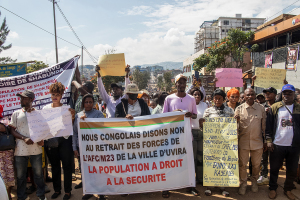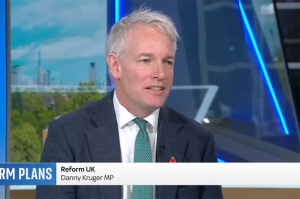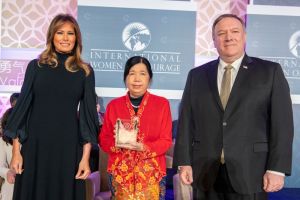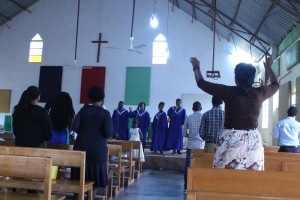Will Pope Francis Raise Awareness of Today's Genocide in the Middle East?
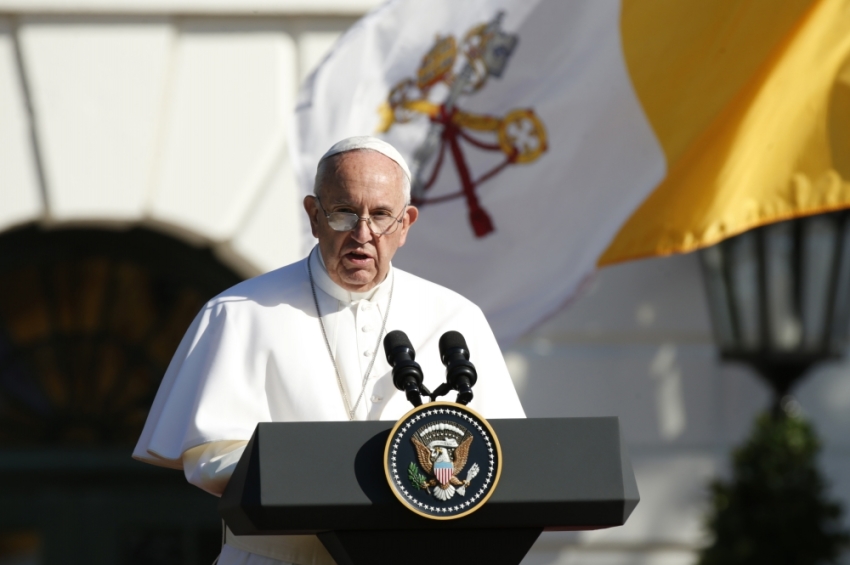
Still, we are where we are, and the question before us now is how do we begin to change course?
"There isn't a magic bullet here. There is no one public gesture that is going to fix all of this," observes Dr. Mark.
He suggests that it would be imprudent to believe that a mere declaration of genocide would be an immediate tipping point. It can, however, provide much needed traction to begin a slow course correction of the worst humanitarian crisis since WWII.
"There needs to be sustained public attention, which will translate into political will. A resolution in Congress won't save lives, but if it creates momentum and generates political will, then we have something to go on."
To that end, over 75 members of Congress have added their names to a bipartisan resolution declaring as genocide the violence perpetrated by ISIS against Christians and other religious and ethnic minorities.
House Concurrent Resolution 75, introduced by Rep. Jeff Fortenberry (R-Neb.), calls for Congress to acknowledge "that those who commit or support atrocities against Christians and other ethnic and religious minorities, including Yezidis, Turkmen, Sabea-Mandeans, Kaka'e, and Kurds, and who target them specifically for ethnic or religious reasons, are committing, and are hereby declared to be committing, 'war crimes', 'crimes against humanity', and 'genocide'."
A formal declaration of genocide by the U.S. Congress alone will not bring a halt to ISIS's campaign of death and destruction. There are many other levers — military, political and diplomatic — that also must be engaged before that goal is achieved. Many are hopeful, however, that a declaration of genocide will provide a mechanism by which to change the trajectory of the deadly conditions in the region.
"Genocide is a true and heavy term. When we place a heavy term on what is happening, new policies will be passed, global leadership will come together, more aid will be available, and the world will start paying attention," says Juliana Taimoorazy, founder of the Iraqi Christian Relief Council (ICRC).
"Genocide isn't only about killing people," adds Taimoorazy. "It is also about destroying communities and cultures. ISIS is destroying us on a human level, but it is also destroying our culture."
Taimoorazy, who began ICRC in 2007 in response to increased attacks on the church in Baghdad, takes a long view of the humanitarian and political crisis in the Middle East. She believes it is important to look not just at evacuation and extraction of communities threatened by ISIS. While that is an important short-term strategy essential for survival, she says that a long-term solution must include the restoration and return of indigenous people to their historical homeland.
Taimoorazy believes that ISIS ultimately will be defeated and careful consideration must be given to what comes next.
"We are trying to encourage world leaders — as they start deciding the fate of the Middle East Christians — to engage us as a community."
For Taimoorazy, a declaration of genocide provides a needed foundation for moving forward.
Rep. Fortenberry's resolution has been referred to the House Committee on Foreign Affairs. Meanwhile, Pope Francis is scheduled to speak before a Joint Session of Congress on Thursday. The stage may be set for the world to firmly acknowledge what its eyes cannot deny — what is happening to Middle East Christians is more than persecution; it is, in fact, genocide. As with Berlin in 1945, however, ending the genocide in Iraq and Syria ultimately will require American power. Talk alone does not end genocide; strength and political will rooted in moral clarity end genocide.















